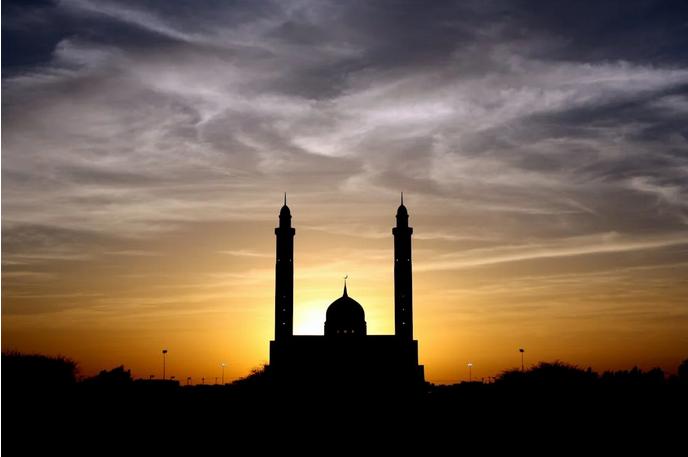Chapter 12: Dealing with Trials: Patience (Sabr) and Gratitude (Shukr)
Understanding the Importance of Patience in Hardship and Expressing Gratitude in Times of Ease
Introduction
Life, in its multifaceted nature, is filled with both trials and blessings. As a devout Muslim, understanding how to navigate these varying circumstances is crucial for spiritual growth and fulfillment. Islam offers profound guidance on how to deal with adversity through patience (sabr) and how to express thankfulness in times of ease through gratitude (shukr). These two qualities are not only encouraged but are foundational to a Muslim’s relationship with Allah.
Patience and gratitude are deeply intertwined in Islamic teachings, often appearing together in the Quran and Hadith. Both are essential to a Muslim’s character and conduct, forming the bedrock of resilience and contentment in life. While trials are an inevitable part of human existence, how one responds to them—through patience or gratitude—determines the course of their spiritual and worldly life. The Quran makes it clear that hardship and ease are both tests from Allah, and they require different responses, yet both are opportunities to strengthen one’s faith.
This chapter will explore the concept of sabr (patience) and shukr (gratitude) in detail, outlining their importance in facing life’s challenges, the ways to cultivate these virtues, and the immense rewards they bring.
1. Understanding Patience (Sabr) in Islam
A. The Essence of Patience in Islam
In Islam, patience (sabr) is defined as the ability to endure hardship, maintain composure in the face of difficulty, and persist in one’s duties towards Allah despite trials. Patience is not simply the passive act of waiting, but rather an active, spiritual quality that strengthens one’s resolve and trust in Allah. It involves self-restraint, perseverance, and steadfastness.
The Quran speaks extensively about the virtue of sabr, emphasizing its central role in maintaining a strong connection with Allah. Allah says:
“O you who have believed, seek help through patience and prayer. Indeed, Allah is with the patient.”
(Surah Al-Baqarah, 2:153)
This verse encapsulates the power of patience in Islam, linking it directly with prayer and divine assistance. In times of distress, Muslims are encouraged to turn to Allah through both patience and prayer, recognizing that Allah is with those who are patient, offering them His support and guidance.
B. Types of Patience
Patience can be categorized into three main types, each of which plays a role in helping a believer persevere through various aspects of life:
- Patience in the Face of Hardship (Patience in Trials)
Life is filled with challenges, whether physical, emotional, or financial. Patience in these moments involves accepting the trial with faith in Allah’s wisdom and maintaining trust that this difficulty is a test that can lead to spiritual growth. The Prophet Muhammad (PBUH) said:
“If Allah loves a servant, He tests him, and whoever is patient, the reward for him is endless.”
(Sahih al-Bukhari)
This type of patience requires not only enduring hardship but also refraining from complaining or grumbling. It is a sign of trust in Allah’s plan and a recognition that everything happens according to His will.
- Patience in Obedience to Allah
This refers to the patience required in fulfilling one’s religious duties, such as prayer, fasting, and charity, especially when these actions become challenging due to distractions or difficulties. It requires one to remain consistent in worship and steadfast in adhering to the guidance of Islam, even when personal convenience or desires might encourage neglect. - Patience in Refraining from Sin
This is the ability to exercise self-control and refrain from engaging in behaviors that are displeasing to Allah. It involves resisting temptations, avoiding sinful actions, and adhering to the moral code outlined in the Quran and Sunnah. Allah warns against yielding to temptations when He says:
“And whoever fears Allah… He will make a way for him to escape, and provide him from where he does not expect.”
(Surah At-Talaq, 65:2-3)
This form of patience is essential for maintaining integrity in a world that often promotes the opposite of Islamic values.
C. The Rewards of Patience
Patience, although difficult, carries immense spiritual rewards. In the Quran, Allah promises great rewards for those who are patient:
“Indeed, the patient will be given their reward without account.”
(Surah Az-Zumar, 39:10)
This implies that the reward for patience is boundless, granted without any measure. The Prophet Muhammad (PBUH) further emphasized this in his statement:
“Whoever remains patient, Allah will make him patient. No one is given a better and more abundant gift than patience.”
(Sahih al-Bukhari)
The reward for patience is not only compensatory in nature (i.e., Allah will reward the patient person in the Hereafter) but also provides inner peace, resilience, and spiritual elevation in this life. Patience helps the believer transcend the immediate hardship and focus on the eternal reward promised by Allah.
2. The Importance of Gratitude (Shukr) in Islam
A. Defining Gratitude in Islam
Gratitude (shukr) is the act of acknowledging Allah’s blessings, expressing thanks, and showing appreciation for the countless gifts He has provided. It is an expression of thankfulness and recognition of Allah’s favor and mercy. Islam teaches that one should be grateful not only in times of ease but also in moments of hardship, recognizing that even difficulties carry wisdom and potential blessings.
The Quran stresses the importance of shukr, saying:
“If you are grateful, I will surely increase your favor upon you.”
(Surah Ibrahim, 14:7)
This verse highlights the direct connection between gratitude and the multiplication of blessings. By acknowledging Allah’s goodness, a person attracts more divine mercy and favor into their life.
B. Gratitude in Times of Ease
Gratitude is often most visibly demonstrated during times of ease, when a person experiences comfort, success, health, and material blessings. A Muslim is encouraged to recognize these blessings as gifts from Allah, rather than as things they are entitled to or have earned by their own effort alone. The Prophet Muhammad (PBUH) taught:
“Whoever does not thank people has not thanked Allah.”
(Sunan Abu Dawood)
This emphasizes that gratitude is not limited to Allah alone but extends to others who contribute to one’s well-being. When a person experiences blessings in life, they should express their thanks through both words and actions—through prayer, charity, good character, and fulfilling the rights of others.
C. Gratitude in Adversity
It may seem counterintuitive, but gratitude is equally essential in times of trial. When faced with hardship, a Muslim is encouraged to maintain a positive attitude, recognizing that trials are a means of purification and spiritual growth. The Prophet Muhammad (PBUH) said:
“How wonderful is the case of the believer, for his affairs are always good. If he is given a blessing, he thanks Allah, and that is better for him. If he is afflicted by a hardship, he shows patience, and that is better for him.”
(Sahih Muslim)
This hadith shows that gratitude is not merely a reaction to worldly blessings but also a profound way to acknowledge Allah’s wisdom even in difficult times. Gratitude in adversity involves recognizing the potential benefits and purification that come from the trial, and thanking Allah for the strength to endure.
D. Practical Ways to Express Gratitude
Expressing gratitude in Islam goes beyond simply saying “Alhamdulillah” (Praise be to Allah). While verbal acknowledgment is important, it should be backed up by tangible actions:
- Using Allah’s Blessings Wisely
Acknowledging Allah’s blessings by using them responsibly and for good purposes is a central way to express gratitude. If someone is blessed with wealth, they should use it to help those in need and avoid excess or extravagance. If someone is blessed with health, they should use their strength to serve others and engage in acts of worship. - Engaging in Worship
The ultimate expression of gratitude is devotion to Allah. Regular prayer, fasting, and charity are acts that show gratitude for Allah’s blessings and mercy. - Maintaining Good Character
Gratitude is also expressed through good conduct. A Muslim who is grateful for Allah’s mercy will show kindness, generosity, and patience toward others. They will strive to embody the moral teachings of Islam in their daily life.
3. The Relationship Between Patience and Gratitude
While patience and gratitude may seem like distinct virtues, they are deeply interconnected in Islam. Patience helps a believer endure trials, while gratitude ensures that they remain content with what they have, whether in times of ease or hardship.
The Quran frequently pairs patience with gratitude, as in the following verse:
“And (remember) when your Lord proclaimed: ‘If you are grateful, I will certainly give you more; but if you are ungrateful, surely My punishment is severe.’”
(Surah Ibrahim, 14:7)
This highlights that gratitude increases Allah’s blessings, while patience ensures that a believer remains steadfast through difficult times without losing faith or hope.
In practice, a person who is patient through trials often finds that their patience is tempered with gratitude for the lessons and rewards Allah bestows upon them. Similarly, a person who is grateful for their blessings will remain patient in times of hardship, trusting that Allah’s plan is always for their ultimate benefit.
Conclusion
Patience (sabr) and gratitude (shukr) are twin virtues that form the foundation of a believer’s spiritual and emotional resilience. Both qualities are deeply embedded in the teachings of the Quran and the Hadith and are essential for navigating the ups and downs of life.
Patience enables a Muslim to endure life’s trials with perseverance and faith, while gratitude ensures that they remain humble and appreciative of Allah’s countless blessings. By embracing these virtues, a Muslim can develop a deeper connection with Allah, attain inner peace, and navigate both the good and the bad moments of life with a sense of purpose and hope.
Ultimately, through patience and gratitude, a believer recognizes the wisdom and mercy of Allah in every circumstance, trusting that every trial and every blessing is an opportunity to draw closer to Him.


